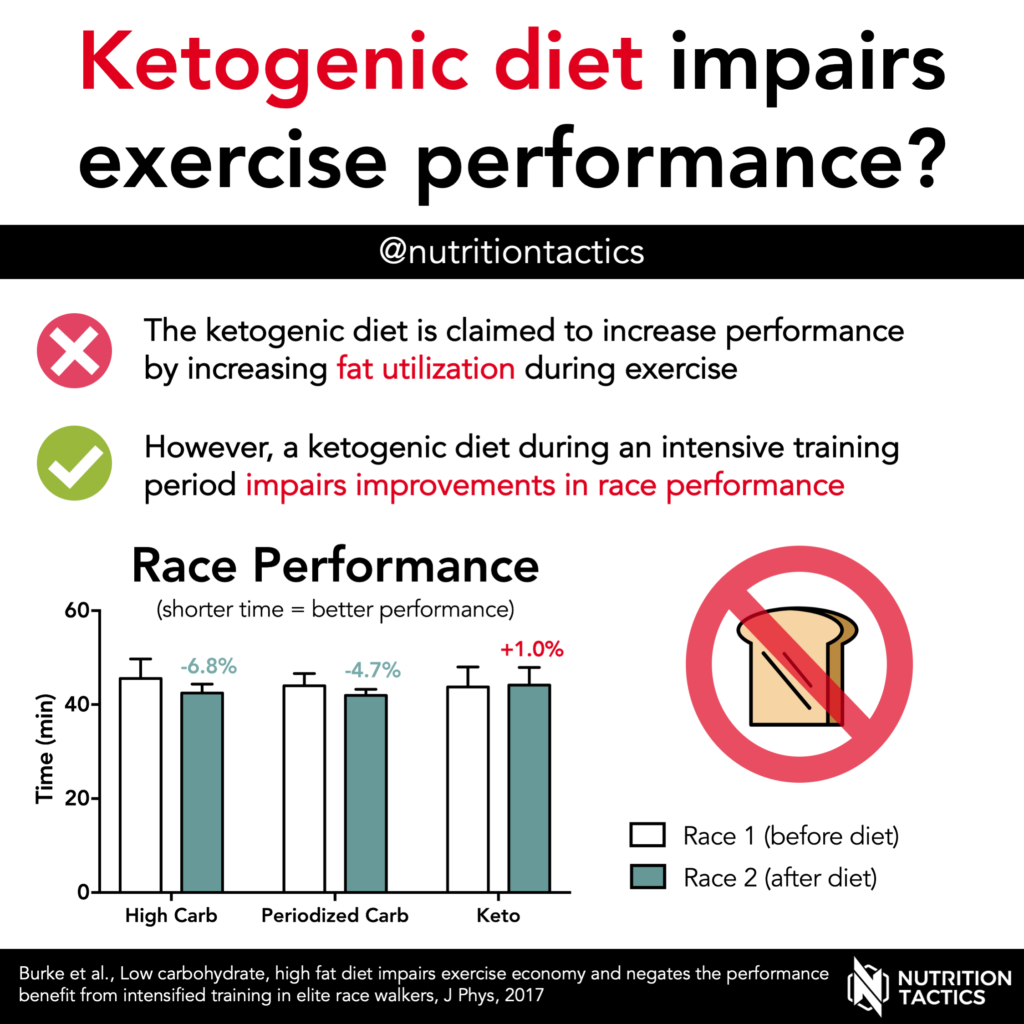Does the ketogenic diet impair endurance training adaptations?
The ketogenic diet is a very low-carb, high-fat diet, that claims to improve exercise performance by increasing the use of fat (fat oxidation) during exercise.
This study investigated the effect of 3 different diets during an intensive training period on training adaptations in elite race walkers: 1) a high-carb diet (~8.6 g carbs/kg/d), 2) a periodized carb diet (same amount of carbs as the high carb diet, but alternated between low carb and very high-carb days), and 3) a ketogenic diet (<50 g CHO/kg/d).
Before and after the 3-week training period, various metabolic measurements were performed, and race performance was assessed.
After the training period, all 3 groups had increased their aerobic capacity (VO2peak). In addition, the ketogenic diet increased fat oxidation rates (2.5-fold). However, the ketogenic diet also decreased running economy (increased oxygen cost at a certain speed).
The regular high-carb and the periodized high-carb diet resulted in increased exercise performance (+6.6 and 5.3%, respectively), while no improvement was observed for the ketogenic diet (-1.6%).
Strengths of the current study include that all meals and training sessions were supervised, the use of elite athletes, and that exercise performance was measured during an official international race with prize money.
A potential limitation is the 3-week diet period. It has been suggested that full adaptation to a ketogenic diet may take longer (although there is no clear evidence in support). However, it could be argued that full adaptation could even further increase fat oxidation and decrease exercise economy and performance.
While it cannot be excluded that a prolonged ketogenic diet may positively impact exercise performance under some conditions, it seems more likely to be detrimental based on the currently available evidence.
Go to the next infographic in the fat series:
Unsaturated fat is better during bulking?


Leave a Reply